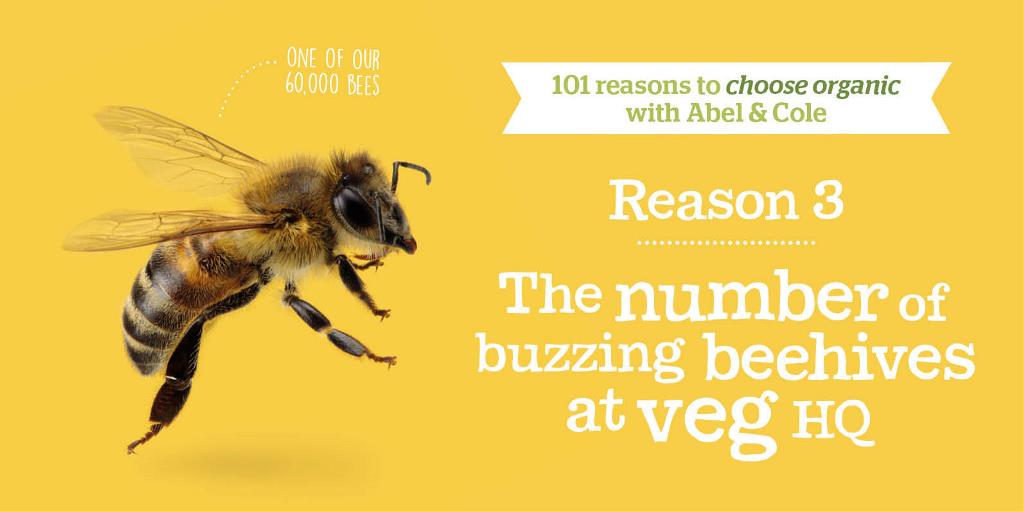We’re playing our part in changing the fortune of bees. They need help and there’s loads we can do in addition to simply supporting organic farming.
Reason 3: The number of buzzing beehives at Veg HQ

The bee-ackground
Bees are incredibly important to the world we’re living in. The fuzzy little things are single-handedly responsible for helping three-quarters of the UK’s wildflowers to grow and flourish. And as one-third of the food we eat depends on pollinators, that jam on your toast or those grilled tomatoes with your fry-up would be much harder to come by without their busy work. They play a vital role in keeping our planet healthy, but in the last 50 years their existence has been threatened by the increased use of pesticides in conventional farming, depriving them of their natural habitat. In fact, since 1900, the UK has lost 20 species of bee and a further 35 are considered to be under threat of extinction. It’s an alarming bit of information, and hearing it, we wanted to step in and do our bit.
Here’s the buzz
With the help of the folks at Plan Bee we’ve adopted three hives home to 60,000 bees, and it’s given a corner of our outside space a real buzz. And as much as we’d all like to be professional beekeepers, sadly that’s not part of our repertoire (not yet, anyway), so Plan Bee regularly sends beekeepers to check on the fuzzy little things. We’re pleased to report that all is well in their three little homes: they’re full of honey and the queens are happy. And there’s an abundance of wildlife for the workers to explore, from the allotments across the Wandle River to Wimbledon Park just over a mile away. For the extra athletic types, Richmond Park lies just over five miles away, so there’s plenty to keep them the busy bees they should be.
Think bee
We can all make a difference to the plight of bees in our own ways. Simple things like filling your garden, window boxes or hanging baskets with as many flowers as you can will work wonders. Look out for the RHS “Perfect for Pollinators” symbol at your garden centre for the best species to plant. For more advice, the RHS website has some great guides. And for the 220+ species of solitary bee in the UK that prefer individual homes, you can build a bee hotel so they each have their own room (see Friends of the Earth’s handy step-by-step guide). And, don’t forget about delicious, golden honey itself. Buy some that’s locally-produced to support beekeepers… like ours! We’ll be jarring ours up as soon as we can, so watch this space. Let’s bee the solution folks.


